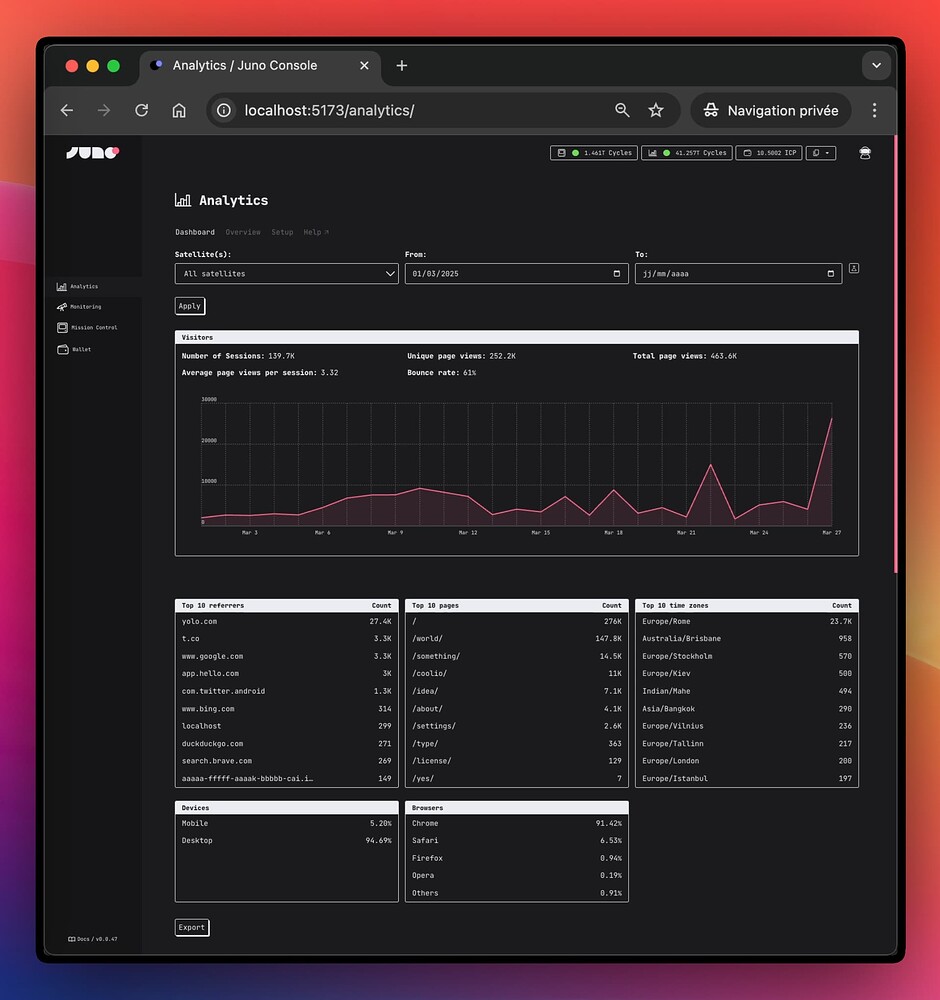Faster Deploys & Precompression
Hi 👋
A new release is out — v0.0.54 🚀
Here are a few highlights:
⚡️ Faster deploys with proposals batching
📦 Smarter precompression (optional Brotli + replace mode)
🔀 Redirects fixed
✨ Shinier experience when deploying in your terminal
Checkout the release notes for details 👉 Release v0.0.54 · junobuild/juno
Example of the new configuration option precompress:
export default defineConfig({
satellite: {
ids: {
production: "qsgjb-riaaa-aaaaa-aaaga-cai"
},
source: "dist",
precompress: {
algorithm: "brotli",
pattern: "**/*.+(css|js|mjs|html)",
mode: "replace"
}
}
});



